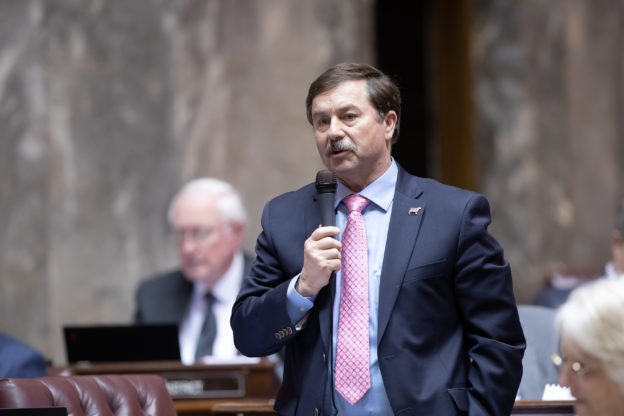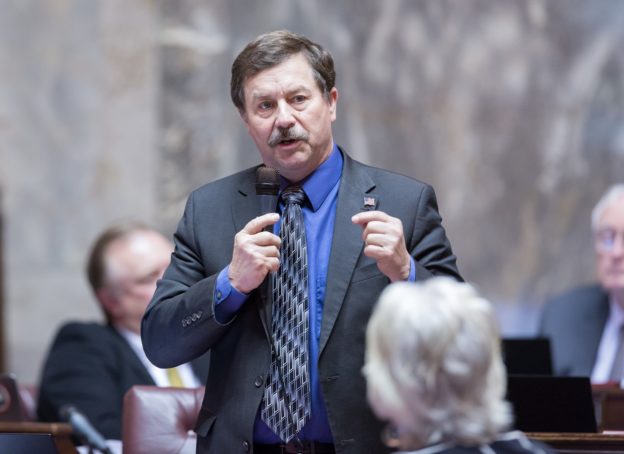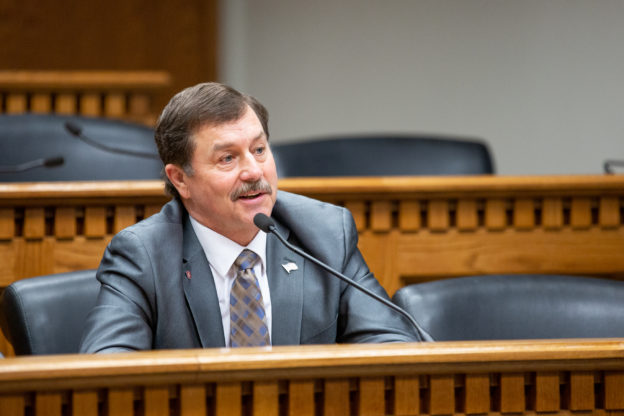Sen. Mark Schoesler has introduced a bill that seeks to provide relief for Washington employers who are facing the possibility of paying higher unemployment-insurance taxes as they also struggle with the effects of the COVID-19 economic shutdown.
Senate Bill 5197 would adjust the calculation used to determine UI taxes. Much like a tuition cap gives certainty to families and students about the costs of higher education, Schoesler’s bill would create a cap on UI taxes to provide welcome stability for employers when it comes to this particular cost of doing business.
“The state’s unemployment insurance fund shrank significantly over the past year for a couple of reasons,” said Schoesler, R-Ritzville. “The economic shutdown caused by COVID caused workers in our state to file a shockingly high number of unemployment claims – and then hundreds of millions of dollars were lost by our state Employment Security Department to foreign fraudsters. Now employers in Washington could be forced to pay more in unemployment insurance taxes, for reasons that aren’t their fault. My bill would at least provide some needed stability at a time when our job providers really need it.”
Schoesler, who owns and operates a wheat farm near Ritzville, says the past year has been especially difficult and unusual for most Washington employers.
“First the government forces so many of them to close, driving up the number of unemployment claims and draining the fund that pays those claims; then the government wants more tax to refill the fund! A local chamber member, who was forced to lay off people during the initial lockdown but hired them all back as soon as possible, told me their UI rate went from about .4% to nearly 4%. That’s as unfair as it gets.”
Schoesler said his bill is different than Gov. Jay Inslee’s requested legislation, SB 5061, which would reduce the financial pain for employers facing bigger UI taxes by spreading the increase out over a longer period.
“One thing that I don’t like about the governor’s proposal is that it also would increase UI benefits in conjunction with the tax hike and extend eligibility beyond layoffs to what are called ‘voluntary quits.’ That’s hardly a satisfactory solution, in my opinion,” said Schoesler.
The 9th District legislator is a co-sponsor of SB 5171, which would take $1 billion from the state’s rainy-day fund to help “backfill” the unemployment insurance money that had to be paid out so unexpectedly.
“Our state’s rainy-day fund was created so it can be used for real emergencies. It’s an appropriate source for this needed relief, and could make the difference between survival and failure for employers who are still hanging on,” said Schoesler.
SB 5197 has been referred to the Senate Labor, Commerce and Tribal Affairs Committee. SB 5171 has been sent to the Senate Ways and Means Committee. No public hearing has been scheduled for either proposal.













